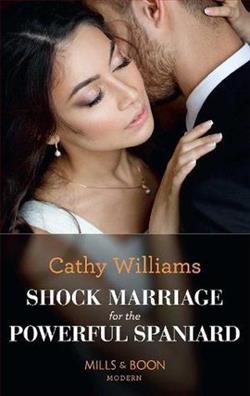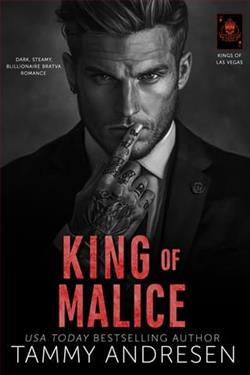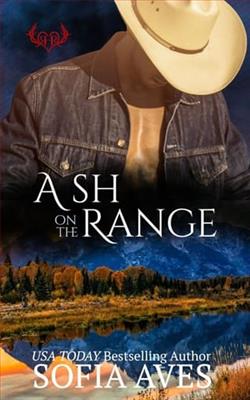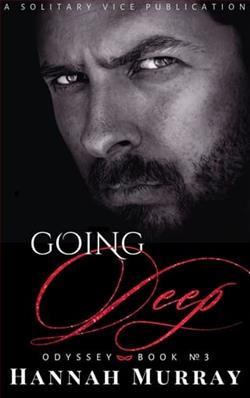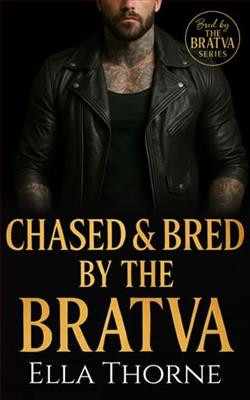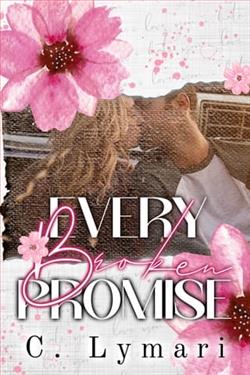Page 29 of The Dragon Ring
“Didn’t they want revenge?”
He nodded. “Of course. But they were young men with few followers. The king of Armorica, their mother’s kin, couldn’t offer them support. His men had been decimated following my grandfather back to Britain. They no longer had the strength of arms to overcome Guorthegirn, who was still in his prime. And don’t forget, he had the Saxons at his beck and call.”
“What happened to Guorthegirn? Merlin told me your uncle became High King, and then your father. How did that come about?”
The noise in the hall was deafening. No one could have overheard our conversation. I felt at liberty to ask him what I liked. And besides which, I was enjoying talking to him because there was something very attractive about his frankness.
“The Saxons were not reliable allies. They wanted more and more– they still do– and Guorthegirn couldn’t pay what they demanded, so they rose up to take it for themselves. As is their habit.” He waved away the slave offering the flagon of wine. “My uncle Ambrosius, and Guorthegirn’s oldest son Vortimer, drove them back toward the sea in Ceint, forcing them to their ships. Many Saxons drowned. My uncle lost many British warriors. Even so, it was a great victory. After that, the fighting went back and forth, and eventually the Saxons sued for peace.”
I wanted to ask the sort of probing questions my father would have posed, but for the moment I stayed silent, listening. This wasn’t the time for them. I just wanted him to talk.
“Guorthegirn trusted them. My father and uncle did not. If they had, then I wouldn’t be here now.”
He was such a vital life force I found myself wondering how he could have been snuffed out before he was born– how the whole canon of myth about him might so easily never have happened, how the legends of King Arthur might never have been.
He went on. “Three hundred men, British kings and princes with their followers, went to meet the Saxons. Guorthegirn amongst them. Ceint was allotted to the Saxons for settling. They all sat down to feast, Britons alongside their Saxon hosts.” His brows knitted in a scowl. “As High King, Guorthegirn had agreed that none should come bearing weapons as a sign of peace. They left these outside and went to eat undefended. And when much wine and mead had been drunk, the Saxons rose up and each slew the Briton by his side. It was called the Night of the Long Knives. All died except for Guorthegirn.”
If Ambrosius and Uthyr had joined their king, Arthur would never have been born. His whole being had hinged on their distrust for the Saxons. I didn’t know what to say. I didn’t need to, though, because he went on.
“Guorthegirn was married to a Saxon princess, Ronweinna, daughter of Hengest. Some said he was spared by her pleadings. Whatever the reason, after that, Guorthegirn was a broken man, a puppet in the hands of Hengest. That was when my uncle began his campaign to snatch back what had been stolen from his father by the Usurper.”
He took a long draught of the wine, then wiped his mouth with the back of his hand. “All this was long before I was born.”
I met his eyes; they were like dark peaty pools. Flustered, I asked, “When was that?” The date of birth of King Arthur would be a choice piece of knowledge.
He hesitated before answering, staring so hard into my eyes I had to drag my gaze away. “Seven years into the reign of my uncle.” He flushed and looked away. “My mother was not my father’s first wife. First, he took a Saxon bride, Aelfled. A match organized by my uncle to broker a cease in hostilities. She was the granddaughter of Hengest and an important pawn in the game of kings. With Hengest dead, my father put her aside so that he might take my mother to wife. I was born ten years after my brother Cadwy, three years before my father became High King.”
His lips came together in a firm line. Was he as discomfited and awkward as I was? Had he felt the electricity that I’d sensed flickering between us?
A fat little man in a costume made of many different colored patches came cartwheeling down the central aisle of the hall to land on his feet in front of us. He swept off his tasseled hat and made a deep bow. He had a large, red, bulbous nose, and one side of his face was much larger than the other, giving him an odd, lopsided appearance. He came up grinning and Arthur threw him a lump of venison from his plate. Catching it deftly between his teeth as a dog would, he flipped over backwards onto his hands, then set off down the hall on them, his legs waving in the air. Shouts of encouragement rang from the benches.
Arthur gave a shout of laughter as the little man fell over a couple of quarrelling hounds.
Despite myself, I liked him. He was intelligent with a quick wit, and even with the quantity of wine being served, he drank as sparingly as I did. He talked about his people, pointing them out in the noisy throng of the Great Hall, catching their eyes, raising his goblet to them in salute. Their faces revealed how much this meant to them. He seemed a much-loved leader. And there was something about him that I found undeniably attractive.
*
I woke latethe next morning, curled amongst the furs and rather scratchy plaid blankets of the bed that should by rights have been Arthur’s. I had no idea where he, having given up his chamber, had been forced to sleep, and I didn’t care. If I were going to suffer the downside of being trapped in the Dark Ages, there was no way I was going to give up the perks.
I lay there for a few minutes, in that sleepy half-awake morning state, not wanting to open my eyes. After a bit, the sound of voices drifted in from the Hall on the far side of the dividing wall. I rolled over to face the door. Women’s voices. One of them was singing, but I couldn’t catch the words. Servants, probably. I was already thinking like a potential princess and taking it for granted that someone else would do the clearing up.
My thoughts drifted to Arthur, which made me think about Nathan as well. Two very different men. Today was the beginning of the third day of my disappearance, and surely Nathan would be panic-stricken by now, and the police would be searching for me. Maybe they’d have dogs out. What would they find, though? Nothing. My scent would have disappeared as though by magic. Definitely by magic if Merlin was right. Something no one’s believed in for centuries. And yet what else could it have been?
I blinked away tears as I thought about Nathan. You can’t just forget someone if you think you’re never going to see them again. I felt like he’d died and I’d been left behind, although in truth it was the other way around. If I was stuck here, then I really was dead–dead and buried in Nathan’s time, just an archaeological find waiting to be discovered, pored over and labelled. Put in a museum, maybe. Horrible thought. A lump rose in my throat.
The opening of the Hall door disturbed my wallowing in self-pity. Maia, the girl from the bath house, came in carrying a steaming bowl of hot water. Just as I’d asked her at the baths. The lump in my throat subsided, and I pushed the covers back off the bed, feeling a little better.
Washed and dressed, my hair in one thick plait down my back, I took breakfast at the table in my chamber, this time of thick slices of hot bacon and scrambled eggs lightly flecked with soot. Who’d have thought the traditional full English was actually Celtic?
The meal over, I ventured through the Hall, empty now of the women who’d been clearing up and tending the fire. By its glowing embers, a pile of hounds twitched and snored, long tails stirring the reeds. They ignored me as I passed them. Some guard dogs they were.
Outside, the day matched my rising mood. It was one of those rare, cold winter days when the sky is an almost cloudless blue and everything beneath it sparkles afresh. The fortress buzzed with activity. A man nearby was sharpening his sword on a whetstone. In the stables, men tended their horses, and cheerful singing came from one of the barns.
Investigation proved the singers to be a group of young women rhythmically beating wheat to loosen the grain from the husks. Winnowing. A cloud of dust rose around them in a haze, but they didn’t seem to mind. I stood and watched for a minute or so, until they, aware of my scrutiny, became self-conscious and their singing died away.
Embarrassed they should feel they needed to be silent because of me, I turned away from the barn door and took a narrow alleyway between the barn and the house next door. Mud squelched under my boots, and drips from the dark thatch spattered my head. I emerged between an earthen bank enclosing the house’s kitchen garden and a pen behind the barn, where pigs rooted in the mud. Beyond, a maze of railed paddocks checkered the hilltop. I’d found the horse pens, so I decided to take a look at the horses.
I threaded my way between the paddocks until I came to one where a group of sturdy cobs grazed. Despite their dirty and shaggy appearance, they were good stock with strong legs and well filled-out bodies, better quality animals than the ones belonging to Abbot Jerome. I leaned on the fence and the horses raised their heads, ears pricked in curiosity, to stare at me. I clicked my tongue at them and a couple of them started to walk toward me.








